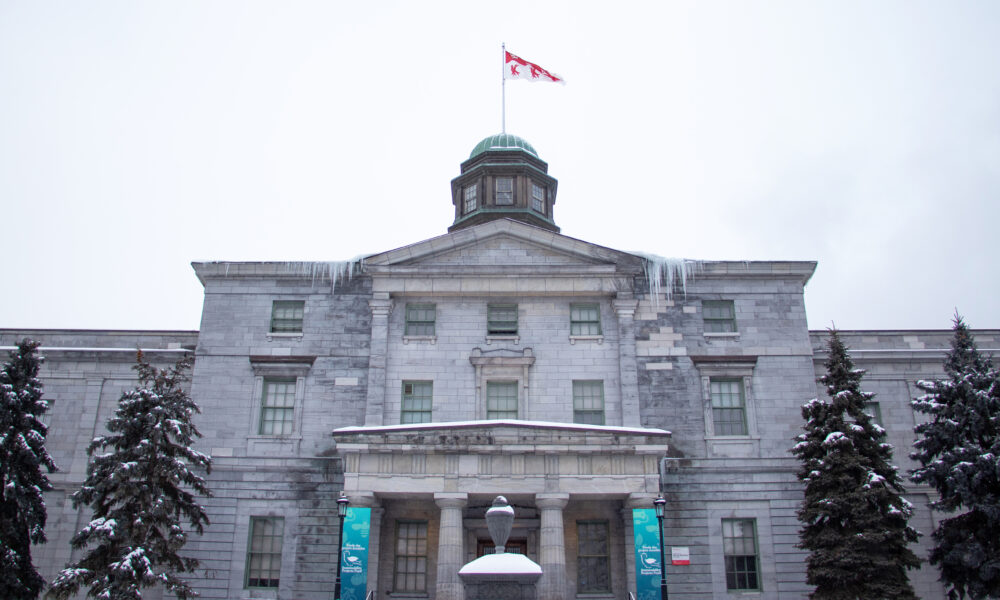What makes McGill a good school to attend? Is it the superior facilities? The enormous introductory classes? Much of the value in attending McGill stems from the McGill degree as a form of cultural capital. In other words, having the McGill name on a resume lends clout. A McGill degree signifies an elite education and, consequently, membership in elite circles. McGill serves not just as an educational institution, but also as an institution complicit in reproducing the elite. To reduce class disparities, proponents of higher education must confront the harsh reality that education is not the great equalizer that it promises to be.
Many McGill community members emphasize that attending the university guarantees social status as an individual who is exceptionally intelligent, hard-working, and determined. This is a gross generalization: Meritocracy is a myth. While it would hold true in an egalitarian world, meritocracy is, unfortunately, not a reality under systems of domination. Education falls victim to the social inequality between the privileged and the marginalized. Those with access to capital of all kinds have inherent advantages in the educational system, as it is built for them. These advantages start from a very young age. When children first attend school at age five, those from elite backgrounds have significant exposure to the dominant culture that schooling reproduces and are considered intelligent purely because they were lucky enough to have well-educated parents.
Schooling continues to widen this gap by tracking students according to their abilities as they progress through the education system. Tracking usually takes the form of dividing children by perceived academic aptitude. Regardless of their potential for achievement, children identified as having lower academic ability––an identification greatly influenced by race and class ––often lack the opportunities their peers have.
When students apply to McGill, class differences become entrenched again, as families, communities, and schools which comprise privileged backgrounds typically funnel students into higher education without great effort on their own part. For these students, attending high calibre post-secondary institutions is the expectation, rather than a marker of achievement. At university, the divide only widens. Richer students are able to pad their resume with extracurricular activities and have sufficient time to dedicate to their studies, whereas those from lower-income backgrounds may have to juggle part-time work with their studies. Navigating university is hard for everyone, but it is exponentially harder for those without familial experience and support. Graduating from McGill with a solid resume and a good GPA is overwhelmingly easier when a student’s upbringing has dealt them a good hand.
Entering the workforce does not reduce the effect of class disparities—if anything, it intensifies them. Background, far more than merit, determines work hierarchies after graduation. Those who know how to play by the rules of the game end up with better positions and better pay. At work, fitting in with coworkers and superiors is easier when an employee shares a common culture. Shared passions and hobbies create camaraderie, but these pastimes and activities are typically linked to class. Put simply, people want to help others whom they can relate to. Class is unseen and seldom talked about, yet pervasive throughout every person’s life. Moreover, race and ethnicity have an overwhelming effect on an individual’s ability to “fit-in” as white supremacy and settler colonialism regulate dominant workplace cultures. As we progress through our lives, social stratification becomes increasingly hard to mitigate. This is why institutions have to do everything in their power to reverse these systemic inequalities.
While elitism in universities like McGill is not solely responsible for inequality in Canada, it makes up the apparatus that impedes class mobility and ensures elite reproduction beyond the educational system. Eliminating the mechanisms that perpetuate class inequality in society will take a significant amount of time and effort. On an individual level, however, the first step is to recognize and acknowledge privilege and move beyond maintaining systems of power.
While elitism in universities like McGill is not solely responsible for inequality in Canada, it makes up the apparatus that impedes class mobility and ensures elite reproduction beyond the educational system. Eliminating the mechanisms that perpetuate class inequality in society will take a significant amount of time and effort. On an individual level, however, the first step is to recognize and acknowledge privilege and move beyond maintaining systems of power.








